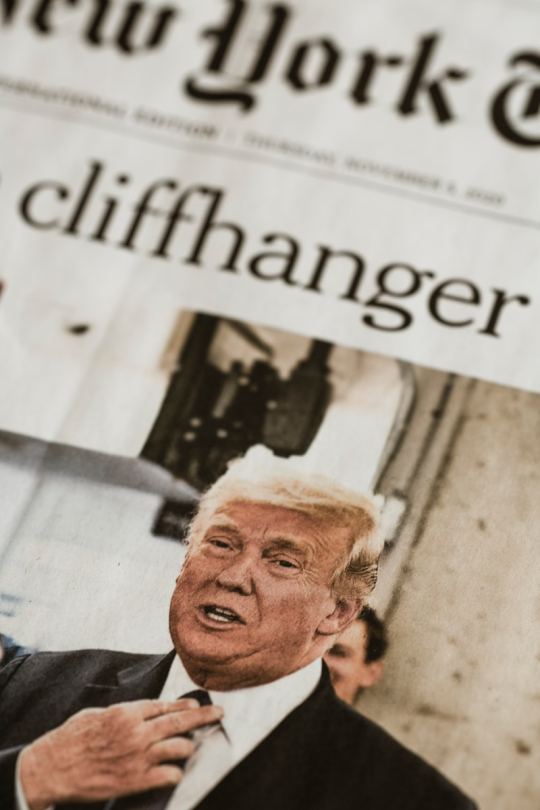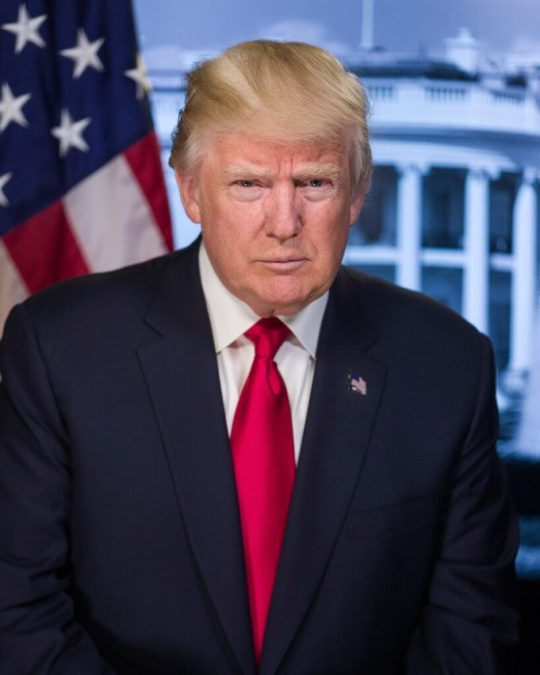#MoneyProblem
Explore tagged Tumblr posts
Text

Astro Mahindra is a like champion among other trusted in astrologers in the progressing time on account of his ideal desire in the field of astrology or for his research works. Unlike most of the other astrologers in Karnataka, he uses his best KP astrology techniques for the welfare of his clients.
#KundliMatching#HoroscopeServices#VastuShastra#FinancialAstrology#SpiritualCleansing#PalmReading#LuckyGemstones#MangalDosha#PalmistryService#astrologer#astrology#vastu#moneyproblem#hinduastrology#jyotish#jyotshi#PtAstro Mahindra Call Now +1 954-995-9994
0 notes
Text

Pandith Ramnath Insight provides remedial measures for various life issues, including education, career, relationships, foreign travel, promotions, love, children, marriage, compatibility, divorce, finances, partnerships, business, property, legal matters, and health. He believes that fate and astrology are closely intertwined aspects of life.
#delayinmarriage#childlessness#horoscope#lalkitab#moneyproblem#businessproblem#childproblem#marriageproblem#careerproblem#education
0 notes
Text
youtube
#Unlock Prosperity with this Vedic Remedy: Solve Money#Health#and Business Problems with Just One Ancient Solution#"n this video#discover the ancient Vedic remedy that can unlock prosperity and solve your money#health#and business problems effortlessly. Learn how this powerful solution#rooted in centuries of wisdom#can transform your life and bring abundance. Say goodbye to financial struggles#health issues#and business setbacks as you embrace this time-tested technique. Don't miss out on the opportunity to manifest prosperity and success with#VedicRemedy#Prosperity#Abundance#MoneyProblem#HealthProblems#BusinessProblems#AncientWisdom#Spirituality#SelfImprovement#Success#Wealth#Happiness#Manifestation#LawOfAttraction#PositiveEnergy#Mindfulness#Wellbeing#FinancialSuccess#Entrepreneurship
0 notes
Text

Venkat Machiraju Insight offers remedial measures for various life issues, including education, career, relationships, foreign travel, promotions, love, children, marriage, compatibility, divorce, finances, partnerships, business, property, legal matters, and health. He believes that fate and astrology are closely intertwined aspects of life.
0 notes
Photo

Why spend money wisely when you can struggle in style? The "Struggle Is Real" tee is here to turn budgeting battles into fashion victories! Perfect for gamers, students, or anyone who's ever said "I can't even adult today." Soft, comfy, and sized for all. Because every coin counts, but so does a good laugh. Shop now & embrace the struggle with a smile! Share if you agree! 🛒 Shop Now
0 notes
Text
Trump Is A Fake Billionaire

The failure of Donald J Trump to post a bond for the $466 million fraud fine judgement against him has confirmed what many have suspected for some time. Trump is a fake billionaire. He does not have access to this kind of money because his properties are already mortgaged to the hilt. The more concerning matter is the fact that the pretty useless American rules of standing for the highest office in the land have no provision for candidates in massive debt. How stupid is this! Apparently, you can become President of the United States owing huge amounts of money to all and sundry. You can owe hundreds of millions to foreign powers – no problem. The American system is a joke!

Trump As Massive Debtor Free To Run For President
There are so many holes in the way things operate for the most eminent and powerful it is a travesty. Laws of the land are only for poor and powerless people, it seems. Who went to jail over the January 6th insurrection? Oh yeah, the ordinary schmucks. Who didn’t? Donald Trump and the politicians. Election interference? Nobody important has been prosecuted yet. Now, that the elected Republicans are largely made up of totally disreputable individuals the justice system is mute and impotent because the political side of things overrides everything else. Liars in Congress fill the benches everywhere you look. Margorie Taylor Greene, Jim Jordan, and Nancy Mace are indicative of the rot that has set in on the GOP side of things. “Now consider the Republican brand for the 2024 presidential cycle. Voters’ perceptions of what the party stands for are based on coverage or exposure to Republican officials who generate the most media attention. By that metric, the Grand Old Party’s modern brand is toxic to at least half the electorate.” (https://thehill.com/opinion/campaign/3959933-six-faces-of-the-gops-toxic-brand/)

Fake Billionaire Fermenting Further Trouble For America Politics has long been a circus in the US but it has reached the level of a freak show in 2024. The system no longer functions the way it was designed to do so. Donald Trump is making damn sure of that. Dysfunction breeds the fertile ground for fascism and totalitarian regimes. This is part of the GOP plan for America – the country has been betrayed by its right wing party. A fake billionaire is pulling the strings of the party of big business. Americans vote traditionally for the party and the leader who will make them more money. They buy into the stories told them of the dangers of socialism and helping those less fortunate. Many Americans embrace an iconic narrative around hard-nosed individualism. This is despite the leg-up they get from family and their privileged positions in society. Voting For A Crook Voting for a crook appears not to phase many on the Right. Laws do not apply to our guy! This is the motto of the new toxic Republican party. The justice system is fine and good when it is prosecuting our enemies – those lefty liberals. Trump remember, began his time in office in 2016, attacking any media criticism of himself as fake news. He established the muddy swamp of disinformation – a climate where folk do not know what to believe. Putin has done the same in Russia for many years. Muddy the waters and sew confusion is the name of the game. Social media serves this purpose mightily. The fake billionaire sits atop his pile of highly leveraged assets and shouts loudly to the world about his wealth and power.

The Trump Appeal The appeal of Trump seems to be in the mould of Archie Bunker from the TV sitcom All In The Family. A loud mouthed old white guy spouting off non-stop with entertaining BS. Obviously, a great affection exists for this American archetype in the collective consciousness of the nation. Trump adds some fake billionaire pizazz to the mix – old fat white guy with trophy wife on arm. There is nothing too subtle about his appeal to the American public – he gets their attention and makes them laugh a little by saying outrageous things. Trump mines the politics of grievance by blaming convenient touchstones of ‘the other’ for all their problems. White supremacy get served up again as everyone non-white gets the blame for the evils in the world. Illegal refugees flooding the country cried Trump and the GOP. Gay people and trans folk cop it, of course, for being different. Uppity women are an age old target too. Throw in Jews for good measure. Poisoning the blood of the nation! Everything woke is bad but nobody listening actually knows what the word means – it has become a catch-all pejorative for anything liberal and left leaning. Trump is a fake billionaire and now owes a further $93 million to Swiss company Chubb. America will not allow someone born outside of America to run for President but it’s fine to be incumbent to a foreign power for lots of money. Where is the independence and agency in that situation? America needs to wake up fast. Trump is destroying the democratic system upon which the republic is based. He has exposed the many holes in the setup. There are already far too many unanswered questions about Trump’s relationship to Vladimir Putin and Russia. America matters to the world and watching it slide into dysfunction and autocracy is abhorrent. Robert Sudha Hamilton is the author of America Matters: Pre-apocalyptic Posts & Essays in the Shadow of Trump. ©WordsForWeb https://read.amazon.com.au/kp/embed?asin=B0CY8CMT33&preview=newtab&linkCode=kpe&ref_=cm_sw_r_kb_dp_4DC1Z0ASRM9CHB64Y1ND Read the full article
0 notes
Text
धन प्राप्ति के लिए करें ये खास उपाय,
कभी नहीं होगी पैसों की परेशानी
0 notes
Text

Boost googd luck with the belessing from Best Indian Astrologer in Montreal - Astrologer Sadhguru.
Available 24/7 and 7 days/7 on call or WhatsApp Call Now:- +1 438 282 6126 Website:- www.astrologersadhguru.com . . .
astrologue #psychique #amourmarriage #amour #astrologue #mariage #astrologie #moneyproblem #horoscope #palmreading #spiritualhealer #psychicreader #kalajadoo #blackmagic #lovemarriageexpert #businessproblem #financialproblem #astrologerinusa #astrologerincanada #astrologyservices #loveproblemsolution #marriageproblems #astrologerinmontreal #astrologerinusa
2 notes
·
View notes
Text
moneyproblem| #kundali के इन भावों को मजबूत करें और होगी धन की बारिश|#ytshorts
youtube
0 notes
Text
Chasing Money? Handling Nasty Clients & Getting Paid!
We share frustrations with clients who avoid calls about payments. It’s awkward faking niceness while chasing our hard-earned money. The struggle is real! #ChasingMoney #ClientStruggles #GetPaid #AwkwardMoments #FreelancerLife #MoneyProblems #BusinessWoes #CustomerService #PaymentIssues #EntrepreneurLife from TENACITY ACADEMY (Cleaning Business Channel ) https://www.youtube.com/watch?v=3NaA0wLvRFM
#cleaning#cleaningbusiness#cleaningbusinessmentor#cleaningbusinesstip#cleaningindustry#cleaningservice#service#tenacityclean
0 notes
Photo

Unlock the blessings of लक्ष्मी माता with our powerful mantra! 🌸✨
Are you seeking success, overcoming job challenges, or financial difficulties? This mantra can guide your path to prosperity.
👉 Listen now: https://www.youtube.com/watch?v=1g3_Bp3FciY
🌼 Key Benefits:
Attract wealth 💰
Enhance career opportunities 📈
Boost confidence 🌟
Join us in this spiritual journey!
#mahalaxmimantra #success #job #moneyproblem #whatsapstatus #hindumantra #prosperity #spiritualgrowth #mantra #blessings #wealth #motivation
0 notes
Text

Pandith Ramnath Insight provides remedial measures for a wide range of life issues, encompassing education, career, relationships, foreign travel, promotions, love, children, marriage, compatibility, divorce, finances, partnerships, business, property, legal matters, and health. He strongly believes in the interconnectedness of fate and astrology in our lives.
#delayinmarriage#childlessness#horoscope#lalkitab#moneyproblem#businessproblem#childproblem#marriageproblem#careerproblem#education
0 notes
Text
The American Congress 101: Structure, Function, and Challenges
The American Congress: Structure, Function, and Challenges I. Structure and Composition of the American Congress1. The Senate: The Upper ChamberKey Features of the Senate: Unique Powers of the Senate: 2. The House of Representatives: The Lower ChamberKey Features of the House: Unique Powers of the House: 3. The Bicameral System: A Deliberate Balance III. Challenges Facing Congress 1. Partisan Gridlock: The Rise of Political PolarizationCauses of Partisan Gridlock Effects of Gridlock 2. Declining Public Trust: A Crisis of LegitimacyReasons for Declining Trust Consequences of Low Public Trust 3. Filibuster and Procedural Hurdles: The Senate’s Gridlock MechanismHow the Filibuster Works Problems Created by the Filibuster Potential Reforms 4. Lobbying and the Influence of MoneyProblems with Money in Politics Possible Reforms 5. Legislative Overload: The Burden of Too Many BillsChallenges of Legislative Overload Potential Solutions IV. Potential Reforms and the Future of Congress Conclusion The American Congress: Structure, Function, and Challenges The American Congress is the legislative branch of the federal government and serves as a cornerstone of United States democracy. As a bicameral institution, it consists of two houses—the Senate and the House of Representatives—each with distinct powers and responsibilities. Established by the U.S. Constitution in 1789, Congress plays a vital role in lawmaking, oversight, and representation. However, despite its foundational significance, Congress has faced increasing challenges in recent decades, including partisan gridlock, declining public trust, and inefficiencies in legislative processes.

I. Structure and Composition of the American Congress The United States Congress operates as a bicameral legislature, meaning it is divided into two separate chambers: the Senate and the House of Representatives. This division reflects the Founding Fathers’ effort to create a balanced system that would prevent excessive concentration of power while ensuring fair representation of both individual citizens and state governments. The Great Compromise of 1787, also known as the Connecticut Compromise, established this system, blending elements of both proportional and equal representation to address the concerns of both large and small states. 1. The Senate: The Upper Chamber The Senate is often referred to as the more deliberative and prestigious chamber of Congress. It consists of 100 members, with each of the 50 states sending two senators, regardless of population size. This equal representation ensures that smaller states have the same level of influence as larger states in the legislative process. Key Features of the Senate: - Longer Terms for Stability – Senators serve six-year terms, as opposed to the two-year terms of House members. This longer tenure allows them to focus on long-term policy decisions rather than short-term electoral concerns. - Staggered Elections – Senate elections occur in a staggered fashion, with roughly one-third of the chamber up for election every two years. This system prevents the Senate from experiencing complete turnover at any given election, preserving continuity and stability. - The Senate as a Check on Populism – The Founding Fathers designed the Senate to be a cooling force in the legislative process, restraining the more immediate and passionate impulses of the House. Initially, senators were not even elected by the public but were appointed by state legislatures until the 17th Amendment (1913) introduced direct elections. Unique Powers of the Senate: - Advice and Consent – The Senate plays a crucial role in approving presidential appointments, including federal judges, cabinet members, and ambassadors. It also ratifies treaties with foreign nations by a two-thirds vote. - Impeachment Trials – While the House of Representatives can bring impeachment charges against federal officials (including the president), the Senate holds the trial and has the power to convict and remove officials from office. - Filibuster and Cloture – The Senate has a unique rule allowing unlimited debate (the filibuster), which can only be ended by a cloture vote requiring a supermajority of 60 senators. This practice often stalls controversial legislation and is a major factor in congressional gridlock. 2. The House of Representatives: The Lower Chamber The House of Representatives is structured to reflect the will of the people, with representation based on state population. It consists of 435 members, with each state's delegation recalculated every ten years based on the results of the U.S. Census. Large states such as California, Texas, and Florida have significantly more representatives than smaller states such as Wyoming or Vermont, ensuring that legislative power is distributed in proportion to population size. Key Features of the House: - Shorter Terms for Accountability – House members serve two-year terms, meaning they must seek reelection frequently. This system ensures that they remain closely connected to the electorate and responsive to public opinion. - Direct Representation – Unlike the Senate, which gives each state equal power regardless of size, the House represents individual congressional districts, making it the chamber most directly linked to the will of the people. - Leadership and Organization – The House is led by the Speaker of the House, who is elected by the majority party and wields significant control over legislative priorities, committee assignments, and floor debates. Unique Powers of the House: - Initiating Revenue Bills – The House has the exclusive authority to introduce taxation and spending bills, often referred to as "power of the purse." This ensures that financial decisions begin in the chamber closest to the people. - Impeachment Power – The House has the power to bring articles of impeachment against federal officials, including the president, although the Senate conducts the trial. - Electoral College Role – If no presidential candidate wins a majority in the Electoral College, the House of Representatives elects the president, with each state delegation casting one vote. 3. The Bicameral System: A Deliberate Balance The division of Congress into two chambers was a compromise between competing political visions during the Constitutional Convention of 1787. The Virginia Plan, favored by large states, proposed representation based on population, while the New Jersey Plan, favored by small states, advocated for equal representation for all states. The resulting Connecticut Compromise (or Great Compromise) created the current system: - The House of Representatives would represent the people through population-based representation. - The Senate would represent the states equally, ensuring smaller states retained influence in national decisions. This structure was designed to balance democracy with stability, preventing the concentration of power while ensuring that both state and national interests were protected. The American Congress, through its bicameral structure, ensures both representation of the people and protection of state sovereignty. The Senate, with its equal representation and longer terms, serves as a stabilizing force, while the House of Representatives, with its population-based representation and frequent elections, remains closely tied to public sentiment. This carefully crafted balance, while sometimes a source of legislative gridlock, has endured for over two centuries, allowing the United States to maintain a dynamic yet stable democratic system. However, as political polarization and procedural challenges continue to evolve, the effectiveness of this bicameral system will remain a subject of national debate. III. Challenges Facing Congress Despite its constitutional importance as the legislative branch of the U.S. government, Congress has faced increasing difficulties in fulfilling its duties effectively. The challenges confronting Congress today stem from both structural inefficiencies and external political pressures, which hinder its ability to function as a responsive and productive institution. Among the most pressing issues are partisan gridlock, declining public trust, procedural obstacles such as the filibuster, the influence of money and lobbying, and legislative overload. These factors contribute to public frustration with the legislative process and raise concerns about the long-term effectiveness of Congress as a governing body. 1. Partisan Gridlock: The Rise of Political Polarization One of the most significant challenges facing Congress is the deepening political divide between Democrats and Republicans. Over the past several decades, the two major parties have become increasingly ideological, making bipartisan cooperation more difficult. Causes of Partisan Gridlock - Ideological Extremism – The rise of more extreme factions within both parties has made compromise less common. Legislators often fear backlash from their party base if they work with the opposition. - Gerrymandering – The drawing of congressional district lines to favor one party (gerrymandering) has created “safe seats” where politicians are more concerned with primary challenges from their own party than appealing to a broader electorate. - Media and Echo Chambers – The growth of partisan media outlets and social media algorithms has reinforced ideological divides, making it harder for lawmakers to find common ground. - Presidential Influence – Increased partisanship has led to an environment where members of Congress often align strictly with or against the sitting president, reducing independent legislative decision-making. Effects of Gridlock - Failure to Pass Crucial Legislation – Major issues such as healthcare reform, climate change policies, and immigration reform remain unresolved due to partisan standoffs. - Government Shutdowns – Budget negotiations often become battlegrounds, leading to shutdowns that disrupt government services and damage public confidence. - Rise of Executive Orders – When Congress fails to act, presidents often resort to executive orders to implement policies, bypassing the legislative process and shifting the balance of power away from Congress. Partisan gridlock has transformed Congress from a forum for debate and compromise into a battleground where legislative victories are rare, and political posturing takes precedence over governance. 2. Declining Public Trust: A Crisis of Legitimacy Public trust in Congress has steadily declined over the years, with polls consistently showing low approval ratings. Many Americans perceive Congress as inefficient, corrupt, or disconnected from the concerns of everyday citizens. Reasons for Declining Trust - Perceived Dysfunction – When Congress fails to pass meaningful legislation or engage in endless partisan bickering, voters lose confidence in its ability to govern. - Scandals and Ethics Violations – Corruption scandals, insider trading accusations, and ethical violations among lawmakers contribute to public cynicism. - Lobbying and Corporate Influence – Many Americans believe that Congress prioritizes the interests of wealthy donors and corporations over the needs of ordinary citizens. - Lack of Responsiveness – Members of Congress often appear more focused on fundraising and reelection campaigns than on addressing the concerns of their constituents. Consequences of Low Public Trust - Voter Apathy – Disillusionment with Congress leads to lower voter turnout, weakening democratic participation. - Rise of Anti-Government Sentiment – Many Americans, feeling unrepresented, become more receptive to anti-establishment movements and candidates. - Weakened Democratic Institutions – When trust in Congress erodes, confidence in the broader democratic system is also affected, making governance more difficult. Restoring public trust in Congress requires greater transparency, accountability, and a commitment to prioritizing the needs of the electorate over special interests. 3. Filibuster and Procedural Hurdles: The Senate’s Gridlock Mechanism The filibuster, a Senate rule allowing a minority of senators to block legislation by extending debate indefinitely, has become one of the biggest procedural obstacles in Congress. Originally intended as a tool for extended debate, it has increasingly been used as a political weapon to prevent votes on major legislation. How the Filibuster Works - A senator (or group of senators) can hold the floor indefinitely, preventing a vote on a bill unless 60 out of 100 senators agree to invoke cloture (ending debate). - This effectively means that most legislation requires a 60-vote supermajority to pass in the Senate, rather than a simple majority of 51 votes. Problems Created by the Filibuster - Legislative Paralysis – Important bills on issues like voting rights, healthcare, and gun control often fail due to an inability to reach the 60-vote threshold. - Minority Rule – The filibuster allows a small minority of senators to block legislation that has majority support, frustrating democratic governance. - Incentive for Inaction – Lawmakers sometimes use the filibuster simply to obstruct the opposing party’s agenda rather than engaging in meaningful debate. Potential Reforms - Eliminating the Filibuster for Certain Issues – Some propose limiting the filibuster to specific topics, such as civil rights or budget matters. - Reducing the Cloture Requirement – Lowering the 60-vote threshold could make it easier to pass legislation while still preserving minority input. - A Talking Filibuster – Requiring senators to physically speak on the Senate floor for the entire duration of a filibuster, rather than blocking votes with procedural motions. The filibuster remains one of the most contentious aspects of Senate procedure, with ongoing debates about whether it should be reformed or abolished. 4. Lobbying and the Influence of Money The role of money in politics has long been a source of controversy in Congress. Lobbyists, corporate donors, and political action committees (PACs) play a significant role in shaping legislation, often prioritizing the interests of wealthy individuals and businesses over the general public. Problems with Money in Politics - Campaign Contributions Influence Policy – Politicians who rely on large donations from industries (e.g., pharmaceutical companies, Wall Street firms) may be more likely to pass legislation favorable to those donors. - Revolving Door Between Congress and Lobbying – Many former lawmakers become lobbyists, using their political connections to influence legislation in favor of special interests. - Weakened Representation of Ordinary Citizens – The influence of wealthy donors creates an imbalance in policymaking, where the concerns of the average voter receive less attention. Possible Reforms - Campaign Finance Reform – Limiting campaign contributions and increasing transparency in political donations. - Stricter Lobbying Regulations – Imposing restrictions on the revolving door between Congress and lobbying firms. - Publicly Funded Elections – Providing public financing for campaigns to reduce dependence on private donations. Without meaningful reform, the influence of money in Congress will continue to undermine its credibility and responsiveness to the electorate. 5. Legislative Overload: The Burden of Too Many Bills Each session of Congress introduces thousands of bills, but only a small fraction ever become law. The sheer volume of legislation contributes to inefficiency and delays in addressing pressing national issues. Challenges of Legislative Overload - Time Constraints – Lawmakers do not have the capacity to thoroughly review or debate every proposed bill. - Committee Bottlenecks – Many bills get stuck in committees and never reach a floor vote. - Prioritization Problems – Urgent issues often compete with less significant legislative proposals, leading to delays in action. Potential Solutions - Streamlining Legislative Procedures – Improving the efficiency of committees and scheduling processes. - Focusing on High-Priority Bills – Setting clear legislative priorities to avoid distractions from less significant proposals. - Better Use of Technology – Using digital tools to enhance legislative tracking and streamline decision-making. Congress faces multiple structural and political challenges that hinder its effectiveness. From partisan gridlock and procedural hurdles like the filibuster to the overwhelming influence of money and legislative inefficiency, these issues contribute to declining public confidence in the institution. Addressing these problems will require a combination of institutional reforms, increased transparency, and a renewed commitment to bipartisan cooperation. Without such efforts, the legislative branch risks becoming increasingly dysfunctional, further eroding trust in American democracy. IV. Potential Reforms and the Future of Congress Reforming Congress to enhance its efficiency and responsiveness is a pressing issue. Read the full article
0 notes
Text

Venkat Machiraju Insight offers remedial measures for various life issues, including education, career, relationships, foreign travel, promotions, love, children, marriage, compatibility, divorce, finances, partnerships, business, property, legal matters, and health. He believes that fate and astrology are closely intertwined aspects of life.
#DelayInMarriage#Childlessness#Horoscope#LalKitab#MoneyProblem#BusinessProblem#ChildProblem#MarriageProblem#CareerProblem#Education
0 notes
Photo

Money problems? Who doesn’t? Wear your truth with tee! Flying coins & piggy banks because adulting is basically a never-ending game of Monopoly. Soft, comfy, & sassy – because who said budgeting can't be fabulous? (196 characters) Share if you agree! 🛒 Shop Now
0 notes
Photo

#zombieland #moneyproblems #richman #camel #needleseye
0 notes